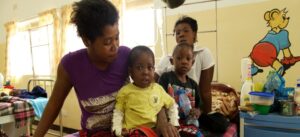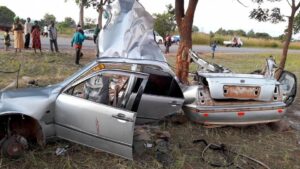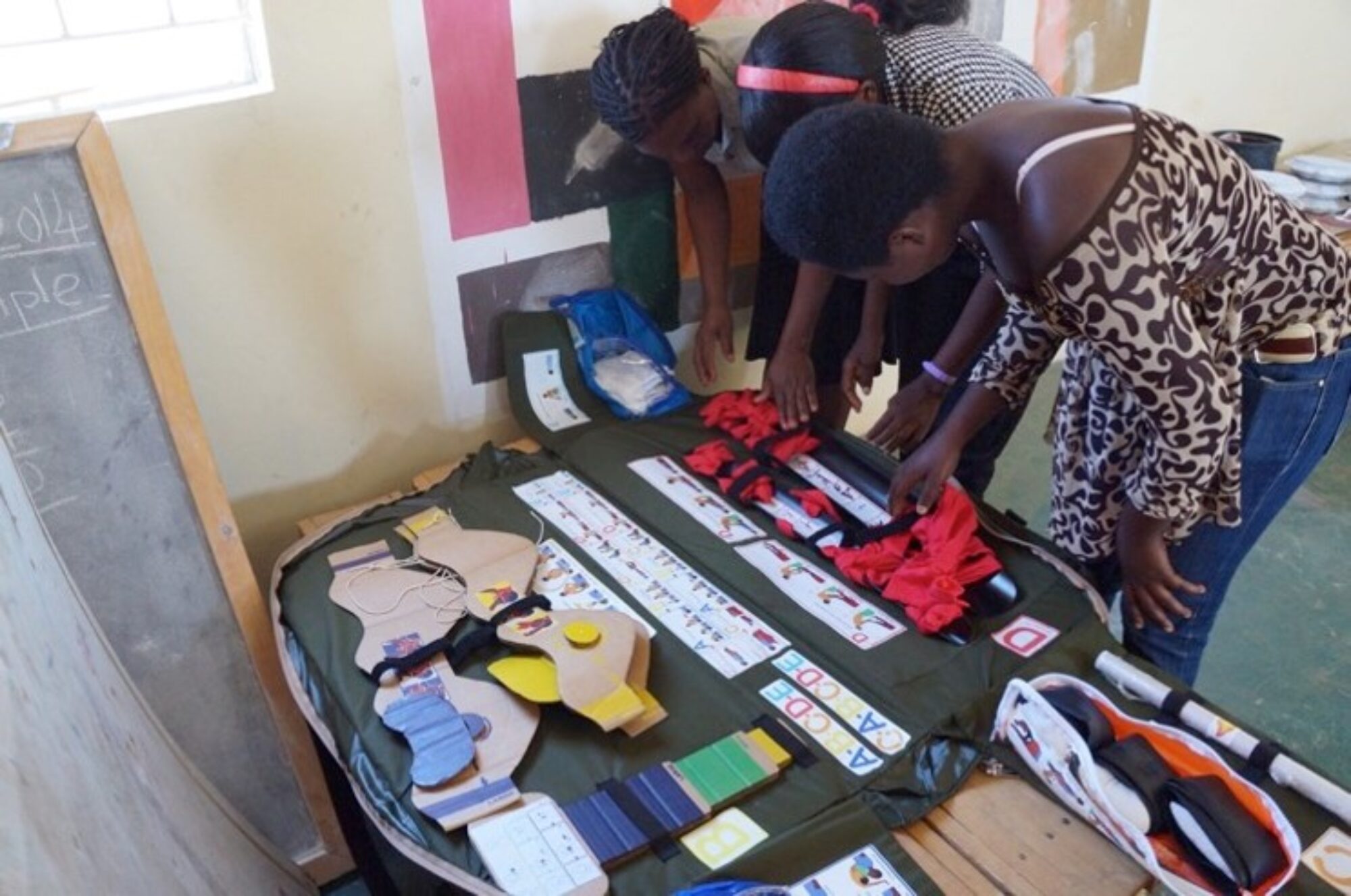Introduction

The project was initiated by Professor Judith Hall from the Cardiff School of Medicine who approached the Cardiff School of Art and Design to collaborate on clinical innovation approaches aimed at sub-Saharan Africa. The research work started in Zambia as part of the Zambia Wales Health Collaboration, supported by the Mothers of Africa Charity that aims to improve the health of the population of the Chongwe district in Zambia.

Research work was led by Dr. Clara Watkins together with the support of Professor Gareth Loudon and Professor Steve Gill. It started with an initial field study in the Lusaka Province of Zambia. One of the main findings of this field study was the need to address medical injuries associated with road traffic injuries (RTIs) in Zambia. As a result, the following design brief was created.
‘The development of a First Responder pack composed of sustainable, locally sourced materials, which can be used by people with limited knowledge, understanding and education, to stabilize victims of Road Traffic Accidents (RTAs).’
Research Process
A human-centred design (HCD) approach was followed, employing participatory ethnographic approaches to the design and development of the Trauma Pack. It involved gaining a deep understanding of trauma care in the UK and gaining insights from key people in Zambia, including predominantly illiterate rural dwellers (the target users), as well as medical professionals and policy makers. Target users were involved in three rounds of testing in Zambia, supplemented by a series of five UK testing rounds to solve basic issues prior to field testing in country.

In April 2017, the research team was awarded £151K from the UK Medical Research Council (MRC) to undertake a 15-month, early phase research study to examine the potential to apply findings from the Zambia study in a Namibian context. The project involved close collaboration with the Namibian Police force and the University of Namibia. As the Namibian Police are frequent first responders to Road Traffic Collisions (RTCs), this study set out to provide training for the police officers as well as other emergency services personnel. A HCD approach was taken again, with target users initially testing the packs.
 A UK and US patent has been granted for the Neck Brace (a key component of the Trauma Pack).
A UK and US patent has been granted for the Neck Brace (a key component of the Trauma Pack).
Impact
Zambia
The prototype Trauma Pack was deployed in response to a 64- person road traffic collision in 2014.
“[The] trauma kit which comprised of Cervical neck collars and splints for long bone fractures was piloted at our hospital in 2014. The kit was easy to use even by our ambulance drivers who do not have any medical background. We were able to stabilise the patients from the accident scene and effectively transport them to hospital for further care. We strongly believe that the kit helped in preserving lives that may otherwise have been lost due to severe bleeding from unstabilised long bone fractures and spinal injuries. Resource allowing, we would recommend the kit to be used on a large scale to reduce the preventable morbidity and mortality from road traffic accidents.”
Dr Job D. Mwanza, Medical officer-in-charge, Chongwe District Hospital, Zambia
Namibia
Six trauma packs were successfully used in treating a range of incidents including road traffic incidents, shootings, stabbings, domestic violence and an attempted suicide.
UK
The Welsh Ambulance Service identified the Trauma Pack as a potential cost saving solution to trauma care
“Something that works in Africa, is cheap and effective, can certainly be made to work for the benefit of the NHS in the UK.”
Dr Ian Bowler, Consultant, Cardiff and Vale UHB
Commercial Licensing of Pack
An exclusive manufacturing license for the Trauma Pack was signed with BCB International (https://www.bcbin.com/).
